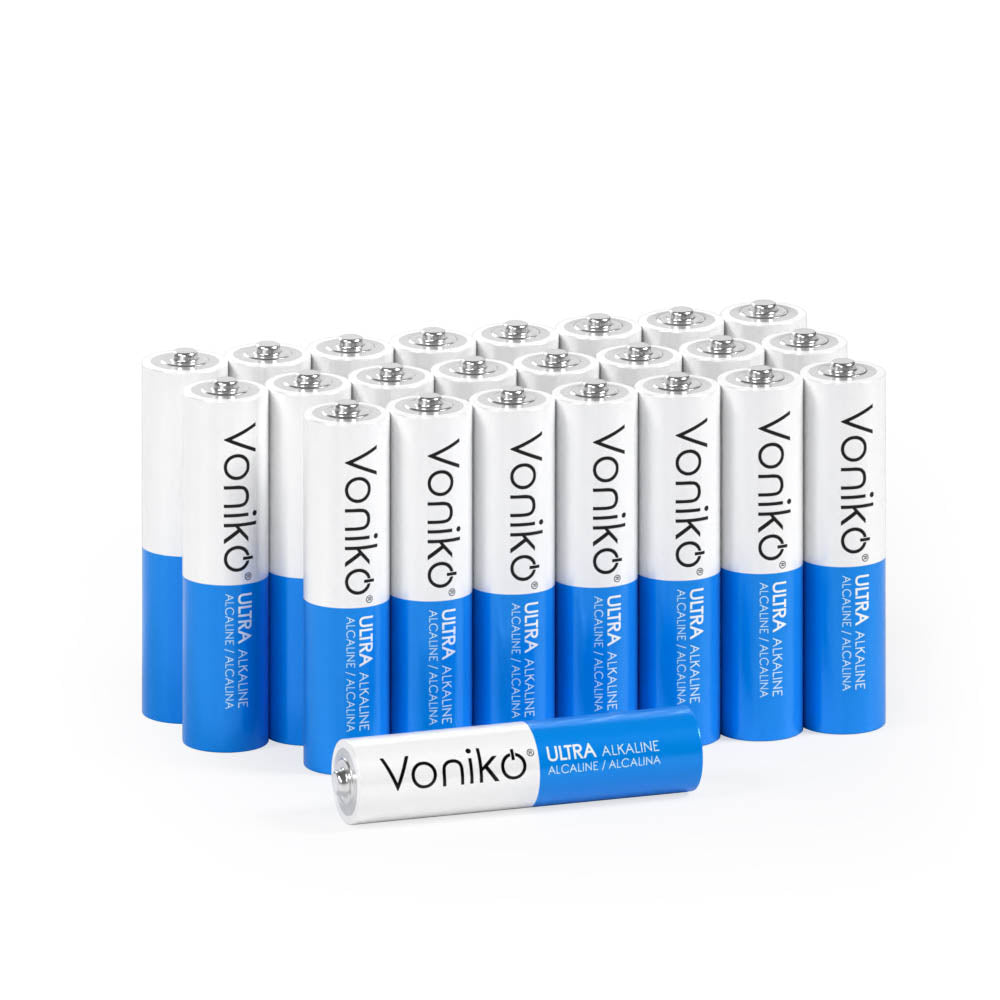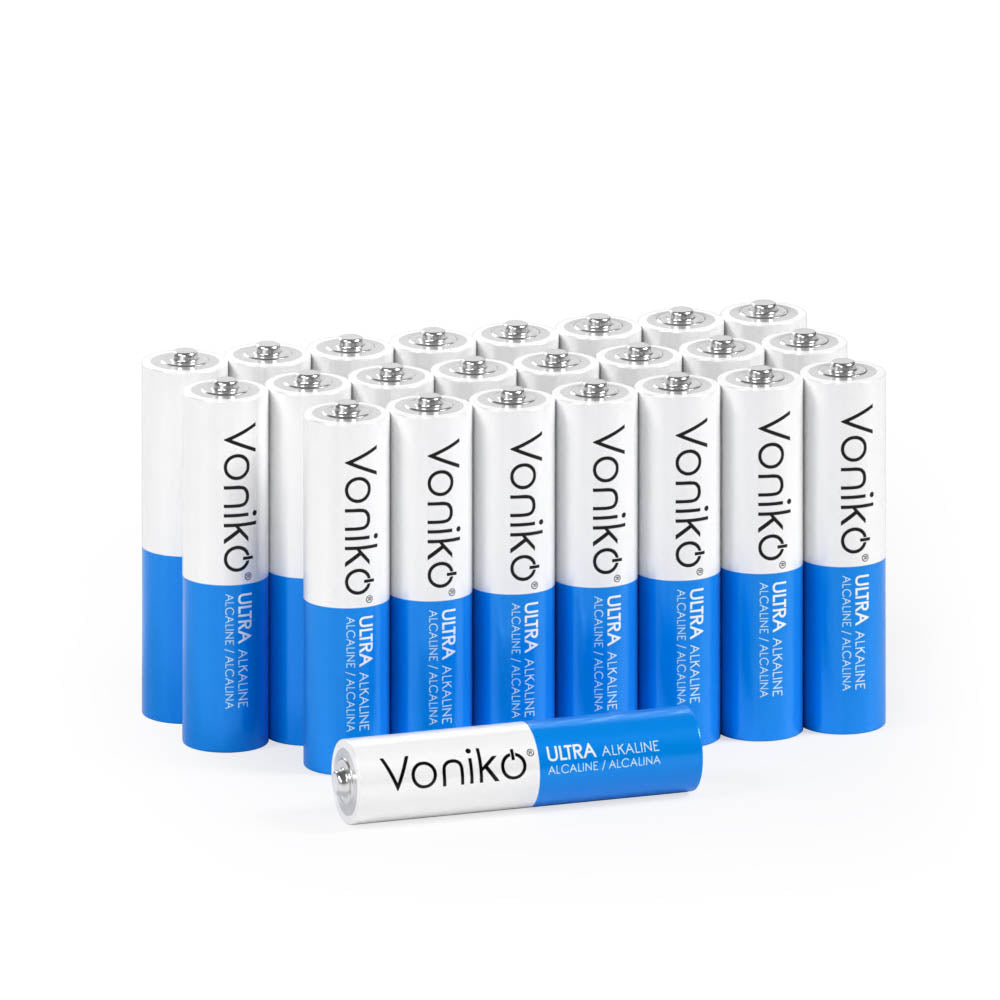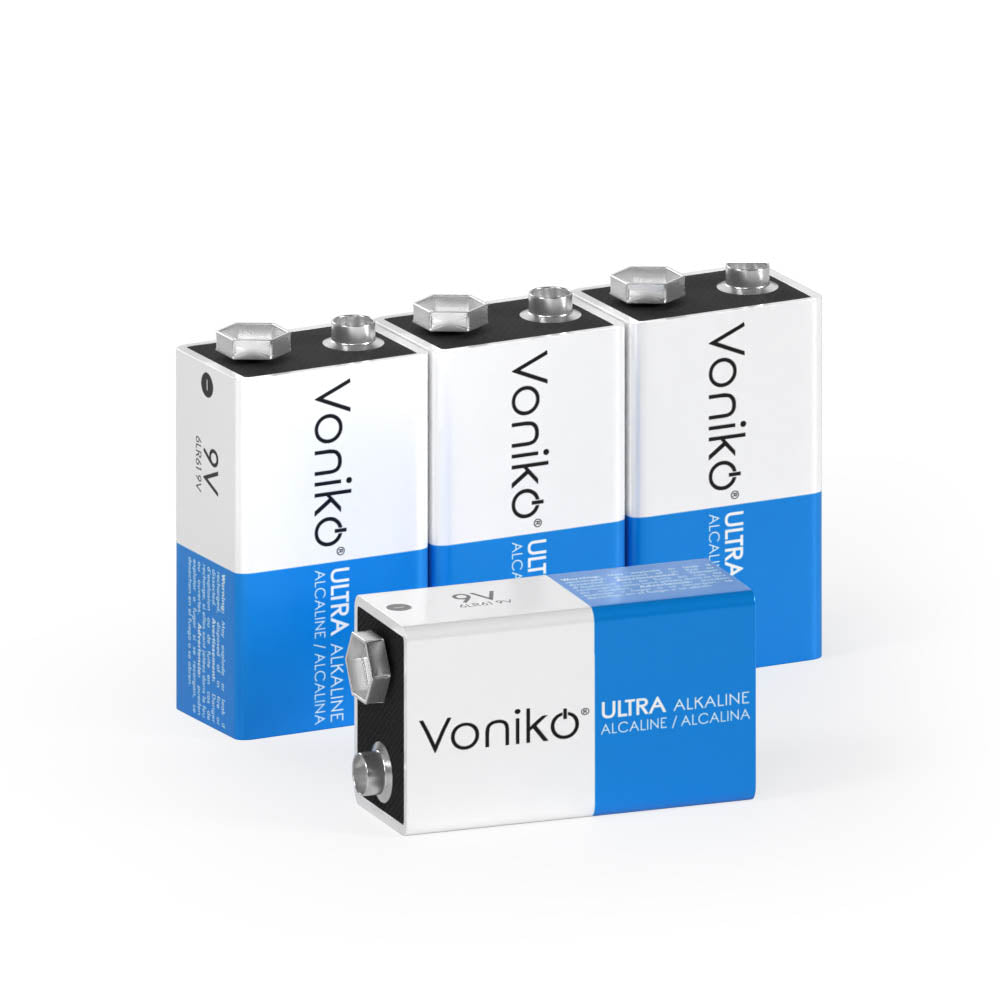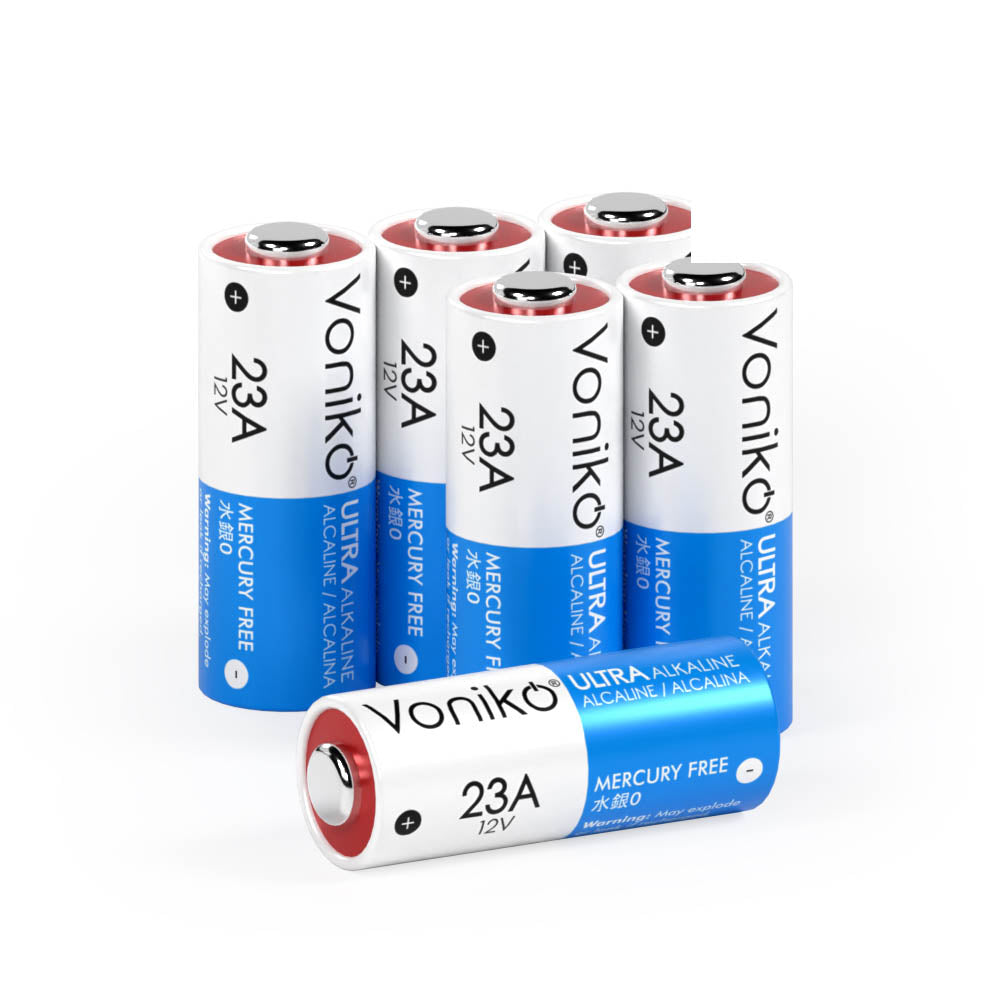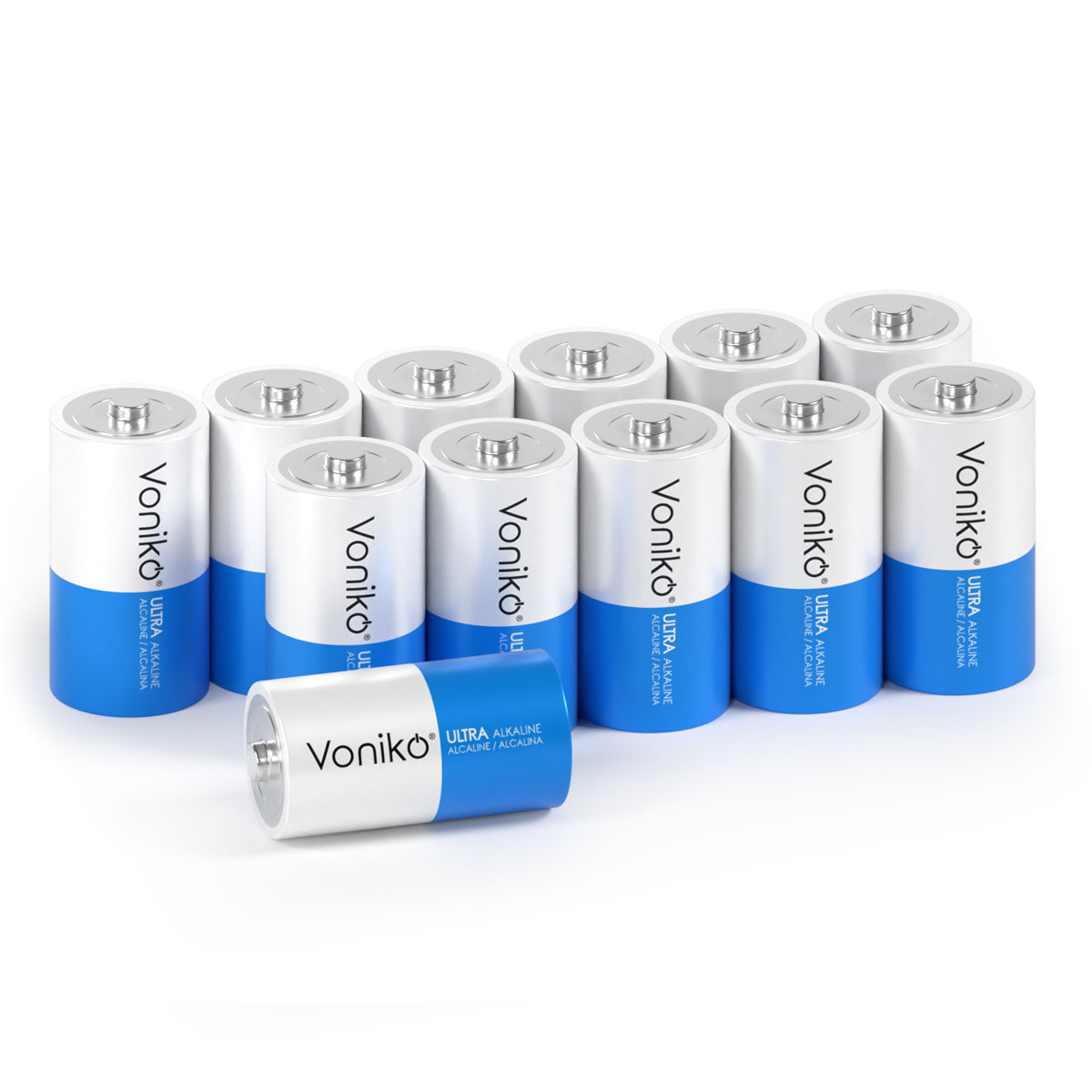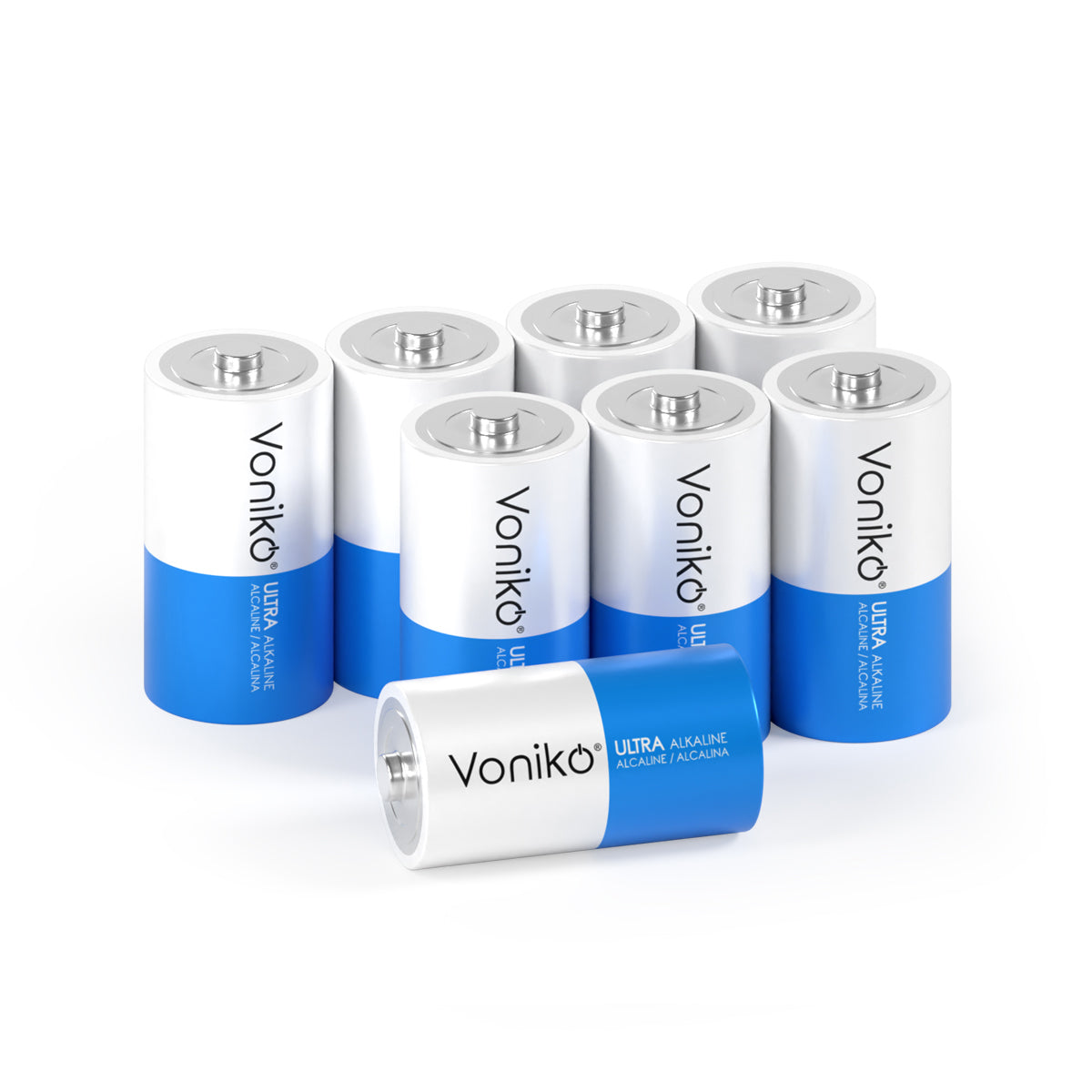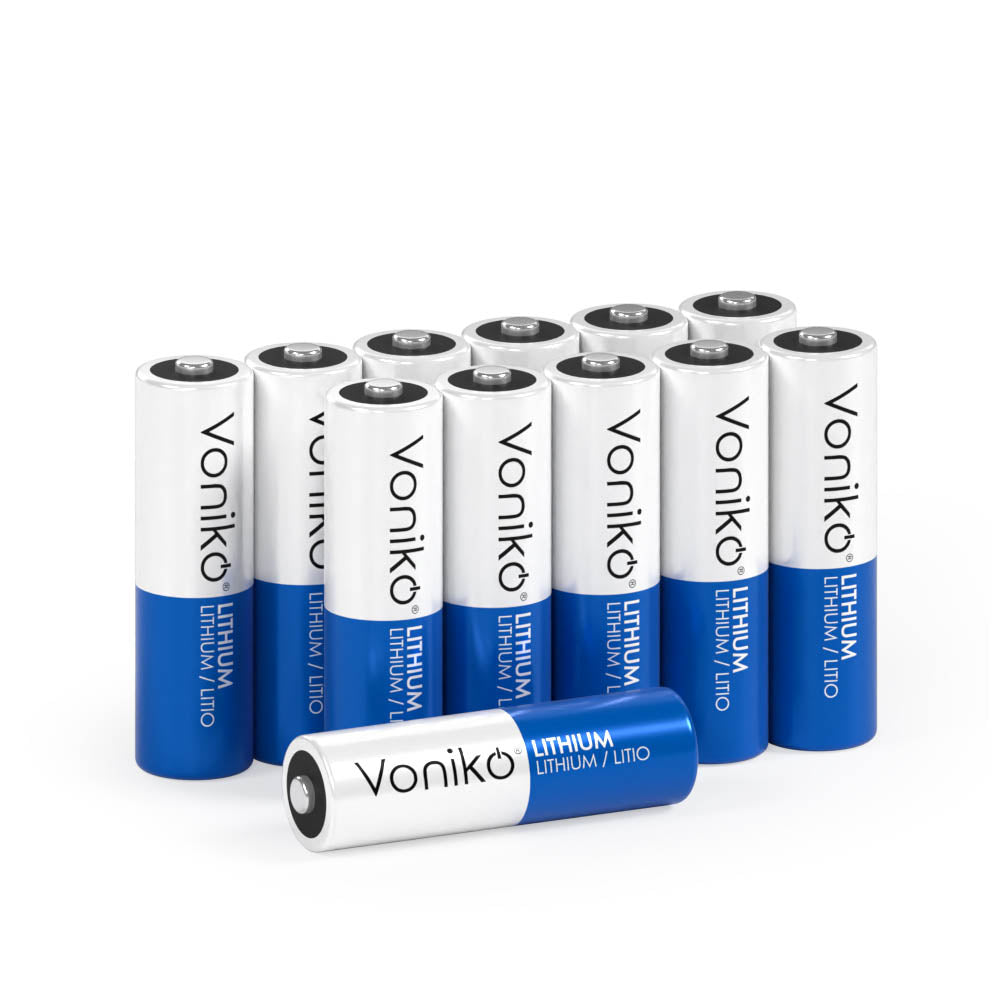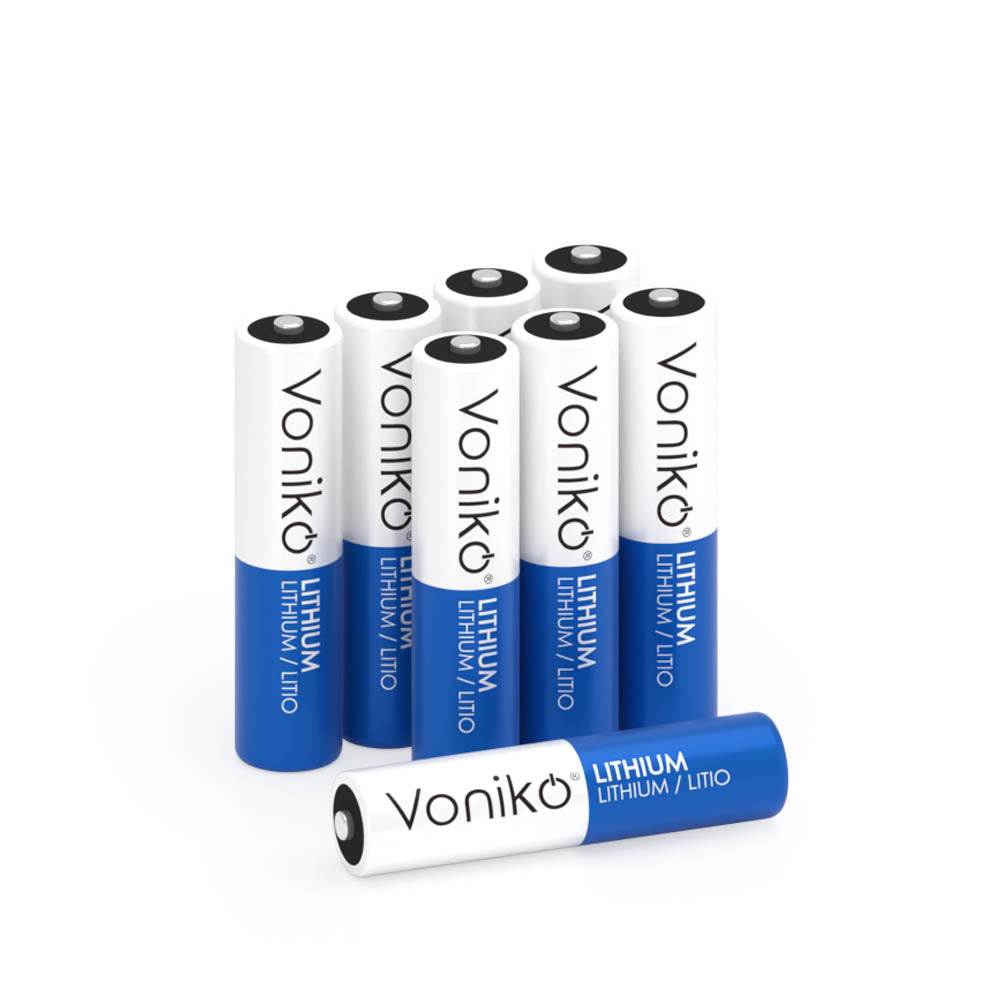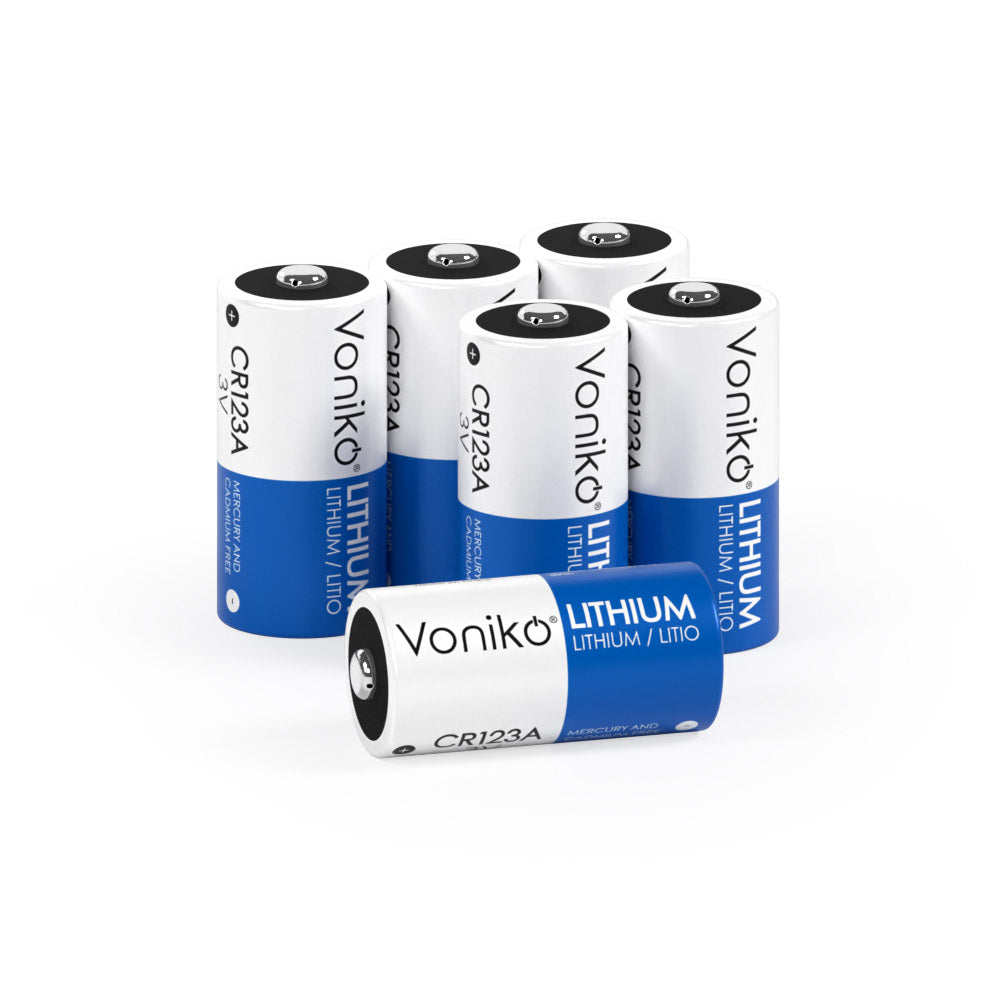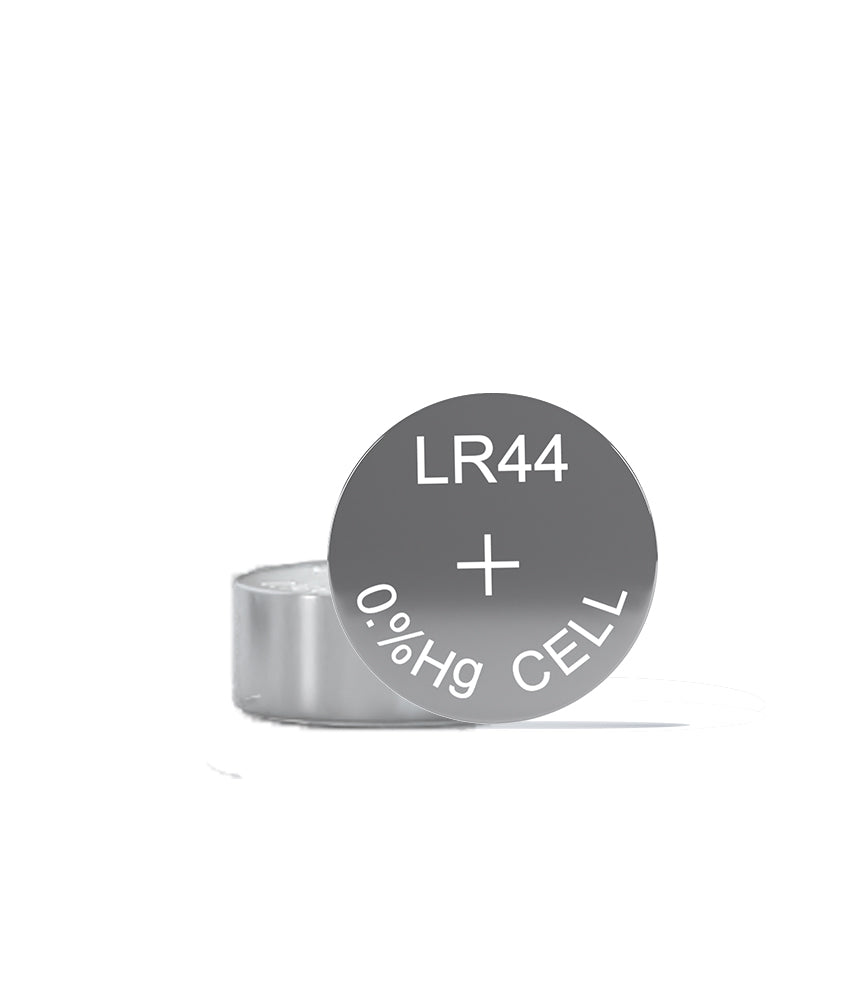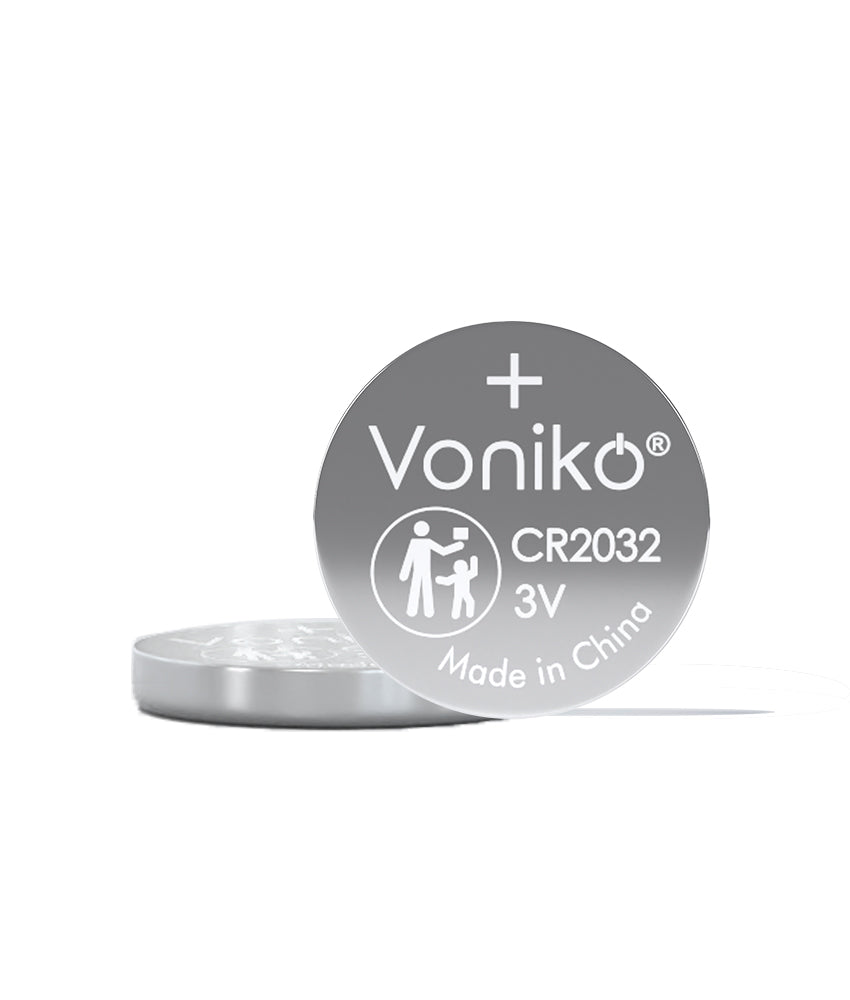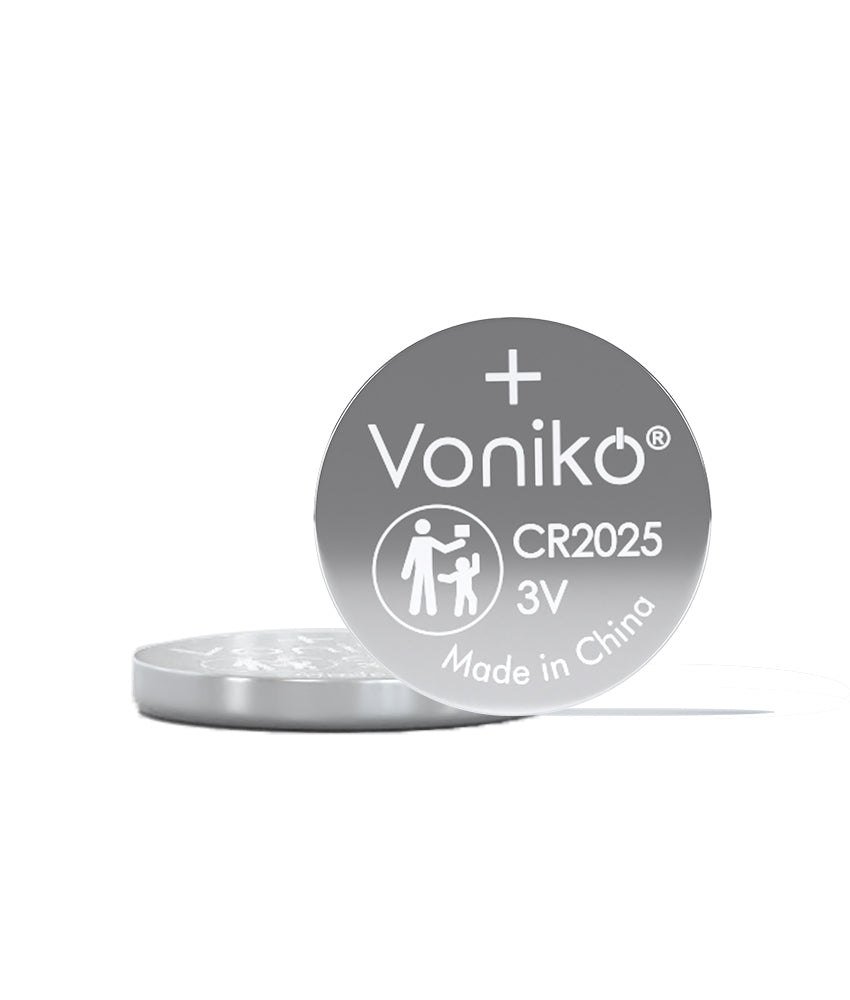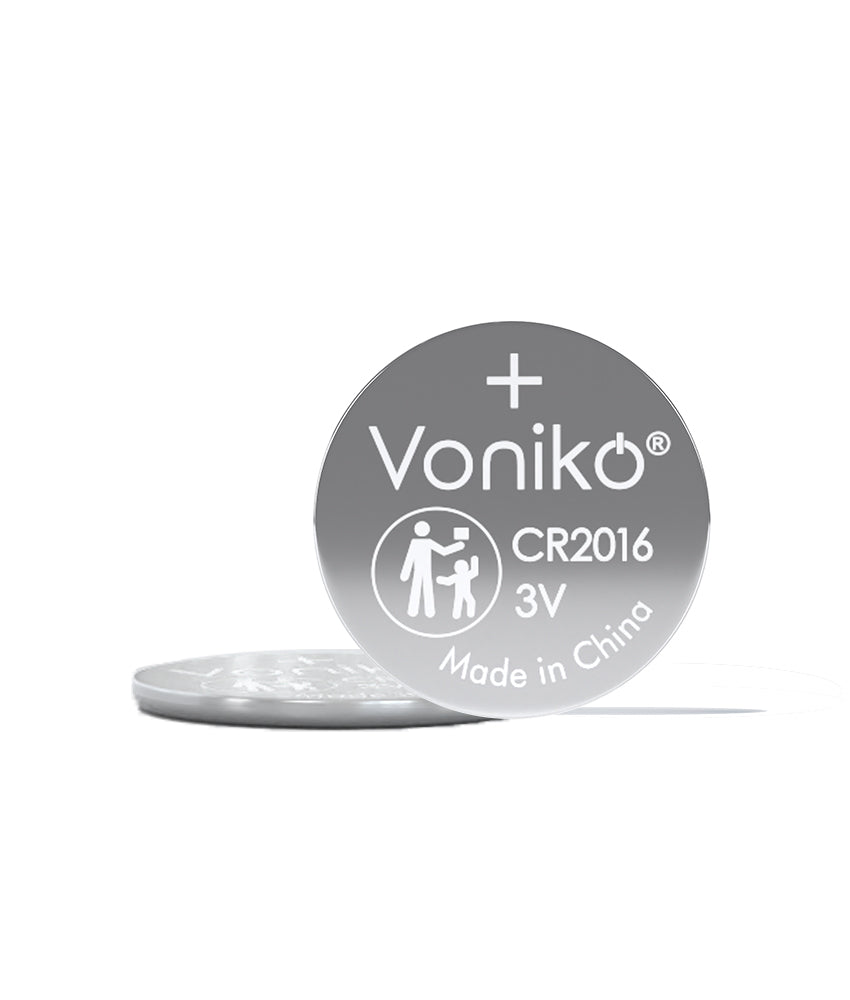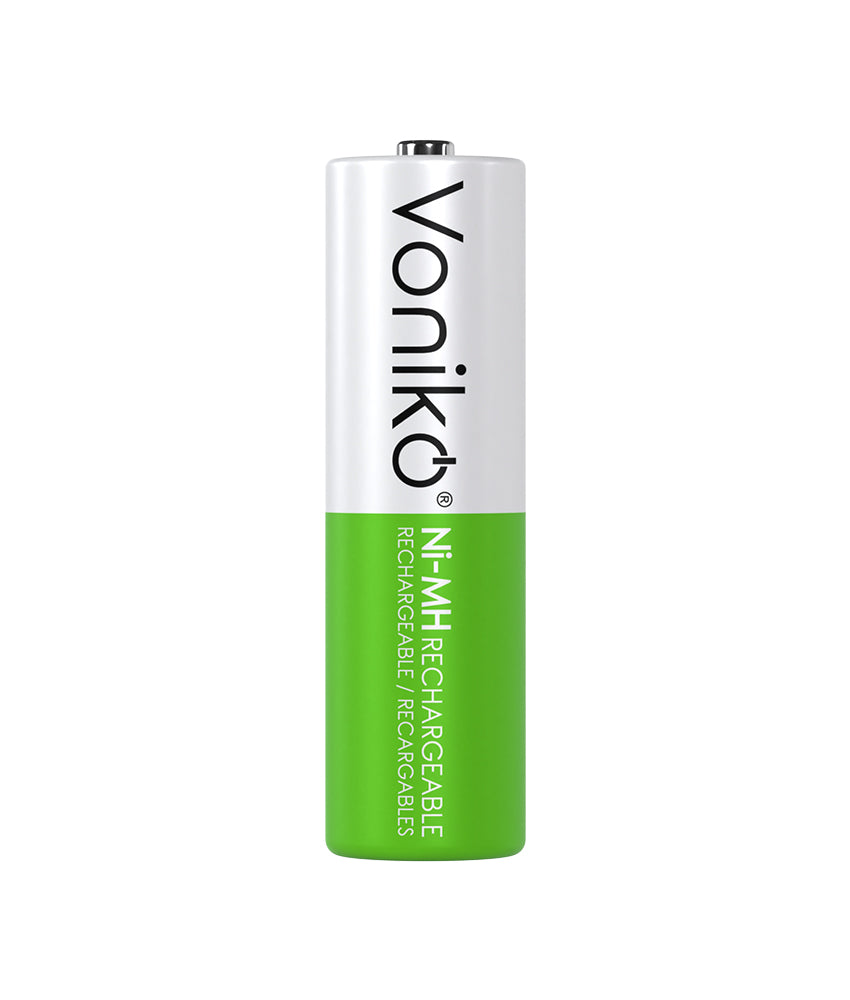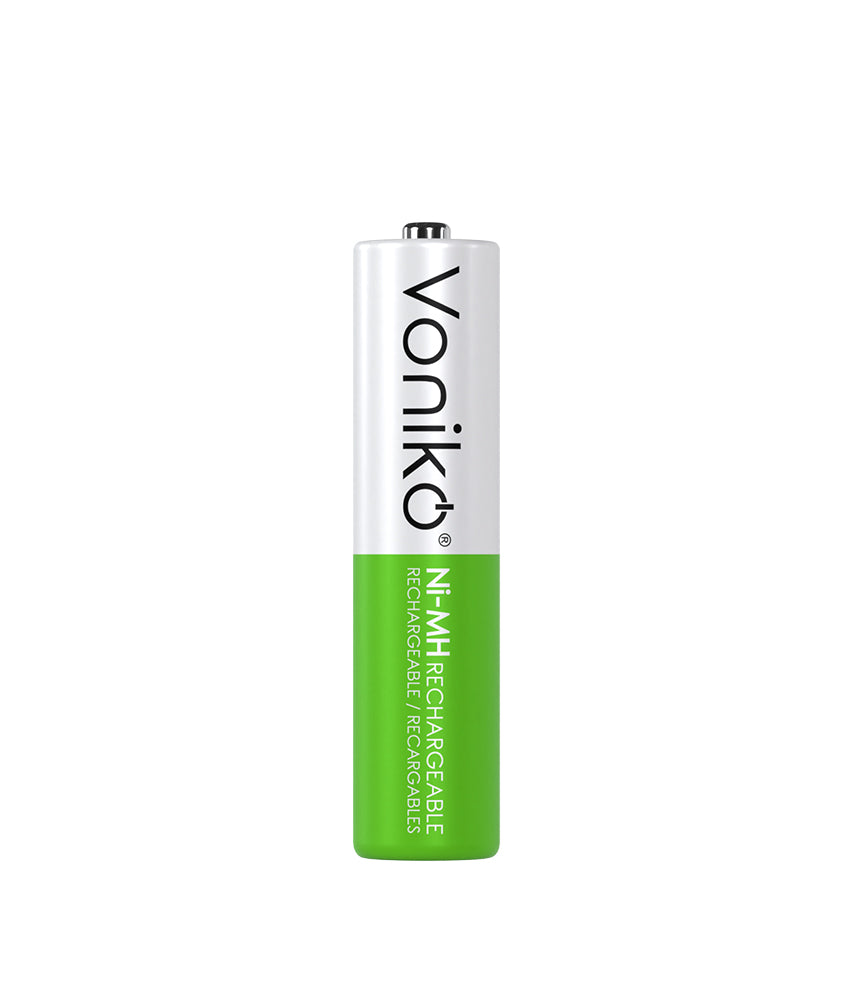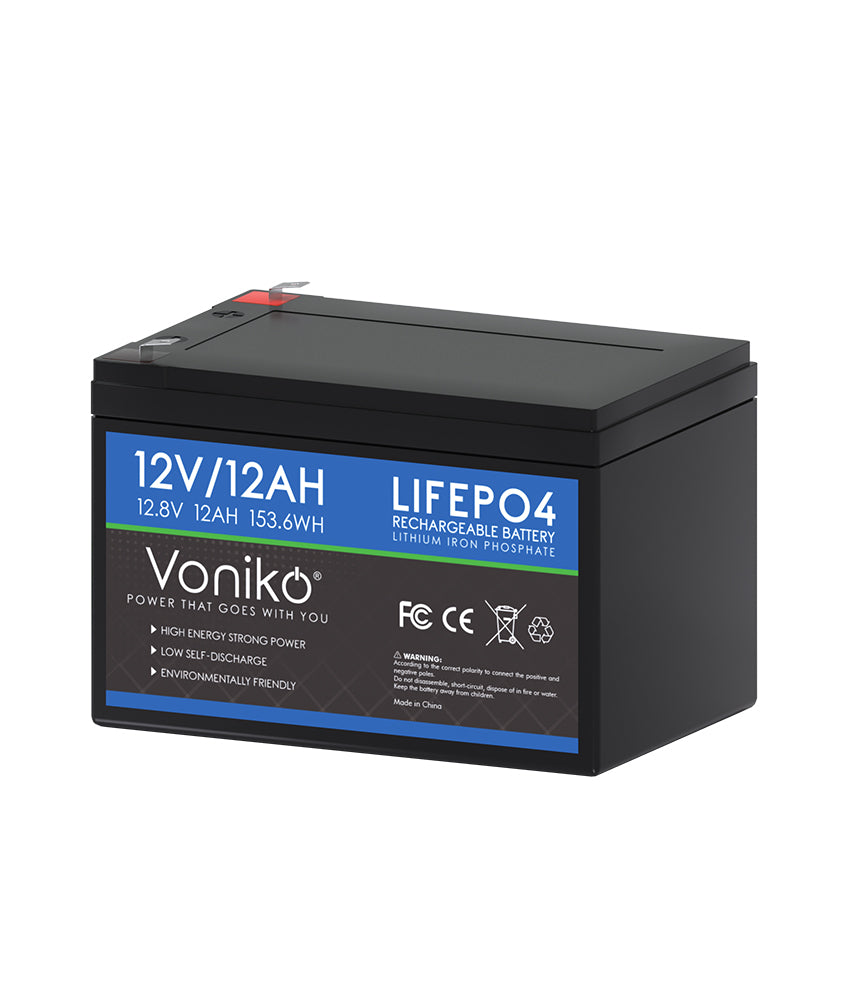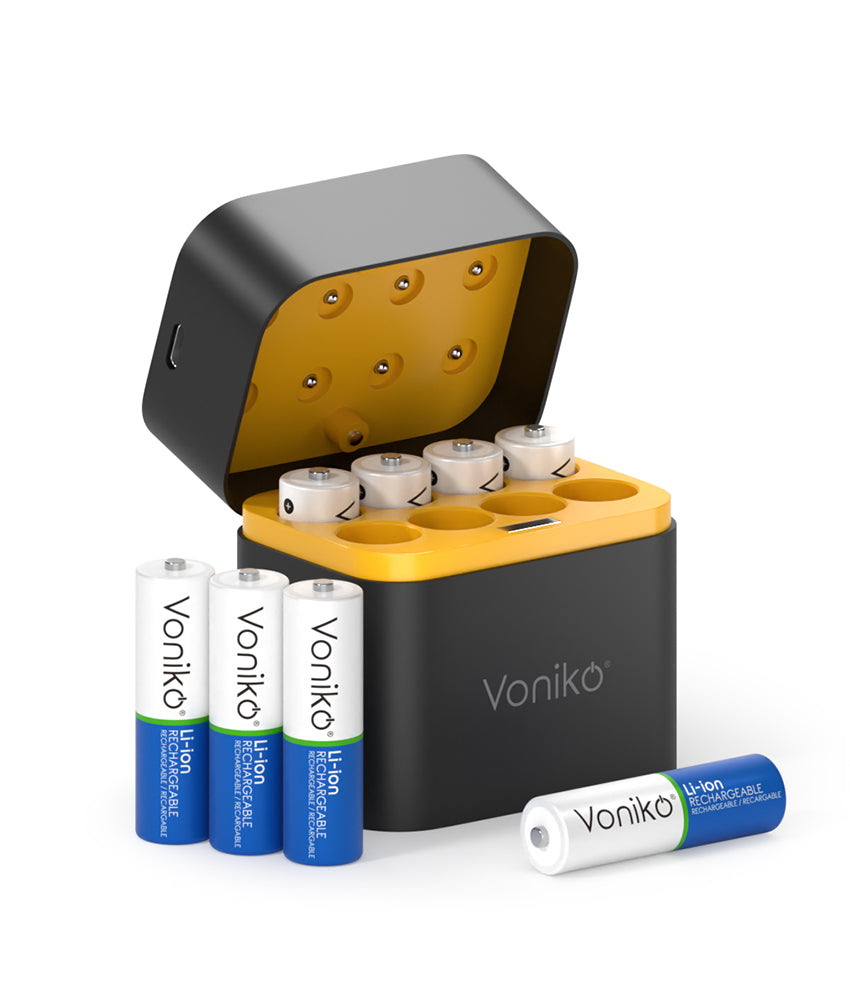That little silver disc keeping your car key fob, computer motherboard, or fitness tracker running? It's probably a CR2032 coin cell battery, and it's way more important than its tiny size suggests. These button-sized batteries power dozens of devices in your daily life, yet most people know almost nothing about them until one dies at the worst possible moment.
You've probably experienced the frustration: your car remote stops working in a parking lot, your bathroom scale won't turn on, or your computer starts acting weird because the CMOS battery died. The CR2032 is often the culprit, and knowing how to choose the right replacement can save you time, money, and a lot of headaches.
At Voniko®, we're a U.S.-based battery brand known for great value household batteries, and our CR2032 coin cell batteries power millions of small devices across the country. Whether you're dealing with a dead key fob or stocking up for future repairs, understanding what makes a good CR2032 battery can mean the difference between reliable performance and constant replacements.
What Exactly Is a CR2032 Battery?
The CR2032 is a lithium coin cell battery that's become the standard power source for small electronic devices. Those letters and numbers aren't random – they tell you exactly what you're getting. "CR" means it's a lithium manganese dioxide chemistry, "20" tells you it's 20mm in diameter, and "32" means it's 3.2mm thick.
This specific size and chemistry combination hits the sweet spot for most small electronics. It's big enough to pack decent capacity but small enough to fit in tiny devices. The 3-volt output is perfect for powering microprocessors, LED displays, and wireless transmitters without taking up much space.
What the code means:
- C: Lithium chemistry
- R: Round shape
- 20: 20mm diameter (about 3/4 inch)
- 32: 3.2mm thick (about 1/8 inch)
- Voltage: 3 volts nominal
The CR2032 has become so standard that most manufacturers design devices around this exact size. It's like the AA battery of the coin cell world – not necessarily the best choice for every application, but so common that it's what everyone uses.
Common Devices That Use CR2032 Batteries
You probably have way more CR2032 batteries in your house than you realize. These little discs are everywhere, powering devices you use every day without thinking about their power source.
Electronics you use daily:
- Car key fobs: Remote start, locking, trunk release
- Computer motherboards: CMOS memory, real-time clock
- Bathroom scales: Digital displays and memory functions
- Fitness trackers: Heart rate monitors, step counters
- Watches: Digital and analog watches with additional features
- Remote controls: TV remotes, garage door openers, some game controllers
Household devices:
- Thermometers: Digital indoor/outdoor temperature displays
- Calculators: Solar calculators with backup power
- Small LED lights: Keychain lights, emergency beacons
- Security sensors: Door/window alarms, motion detectors
- Medical devices: Glucose meters, blood pressure monitors
Specialized equipment:
- Motherboards and servers: Keeping time and settings when power is off
- Professional meters: Multimeters, pH meters, calibration equipment
- Backup memory: Saving settings in various electronic devices
- Wireless sensors: Temperature sensors, humidity monitors
The thing about CR2032 batteries is they usually die when you least expect it. Your car remote stops working when you're running late, or your scale won't turn on when you're trying to track your weight. Having spare CR2032s around is one of those small preparations that saves big headaches later.
Performance and Lifespan: What to Expect
CR2032 batteries are built for the long haul, but their lifespan depends completely on what device they're powering and how often it gets used. In low-drain applications, a quality CR2032 can last years. In high-drain devices, you might be replacing them every few months.
Typical lifespan by device type:
- Computer CMOS: 3-5 years of continuous operation
- Car key fob: 1-3 years depending on usage
- Digital scale: 2-4 years with normal home use
- Watch with basic functions: 2-3 years
- Remote controls: 2-5 years depending on usage
Factors that affect battery life:
- Temperature: Extreme heat or cold shortens life significantly
- Usage frequency: Devices used daily drain batteries faster
- Power draw: LED displays and wireless transmission use more power
- Age: Even unused batteries gradually lose capacity over time
- Quality: Cheap batteries often die much sooner than expected
Our Voniko CR2032 batteries come with a 7 year shelf life, meaning they'll maintain their capacity for years even when stored unused. This shelf life is crucial because you often buy these batteries as spares, and they might sit in a drawer for years before you need them.
The performance curve of CR2032 batteries is different from regular AA or AAA batteries. Instead of gradually getting weaker, coin cells maintain steady voltage for most of their life, then drop off quickly when they're nearly dead. This means your device works normally right up until the battery needs replacement.
CR2032 vs Other Coin Cell Sizes
The coin cell family includes dozens of different sizes, but the CR2032 dominates because it offers the best balance of capacity and size for most applications. Understanding the differences helps you know when you can substitute one type for another.
Common coin cell sizes:
- CR2025: Same diameter as CR2032 but thinner (2.5mm vs 3.2mm)
- CR2016: Same diameter but even thinner (1.6mm)
- CR1632: Smaller diameter (16mm) but same thickness as CR2032
- CR1220: Much smaller (12mm diameter, 2.0mm thick)
- CR3032: Larger diameter (30mm) for devices needing more capacity
Key differences:
- Capacity: CR2032 typically 220-240mAh, CR2025 around 170mAh, CR2016 around 90mAh
- Thickness: Thicker batteries won't fit in spaces designed for thinner ones
- Runtime: More capacity means longer device operation
- Availability: CR2032 is most common, others harder to find
When you can substitute:
- CR2025 in CR2032 space: Usually works but won't last as long
- CR2016 in CR2032 space: Might work but significantly shorter life
- CR2032 in CR2025 space: Won't fit, too thick
When you can't substitute:
The thickness difference is the big issue. Many devices are designed with just enough space for the specified battery thickness. Trying to force a thicker battery can damage the device or create poor electrical contact.
Lithium vs Alkaline Coin Cells: Why Chemistry Matters
While most CR2032 batteries use lithium chemistry, you'll occasionally see alkaline coin cells in similar sizes. The chemistry difference affects everything about how these batteries perform.
Lithium coin cells (like CR2032):
- Voltage: 3.0 volts nominal
- Capacity: Higher energy density
- Temperature range: Works in extreme temperatures
- Shelf life: 7+ years for quality batteries
- Self-discharge: Very low, maintains charge during storage
- Cost: More expensive upfront
Alkaline coin cells:
- Voltage: 1.5 volts nominal
- Capacity: Lower energy density
- Temperature range: Limited performance in extreme temperatures
- Shelf life: 3 year shelf life typical
- Self-discharge: Higher than lithium
- Cost: Cheaper upfront but may need more frequent replacement
Why most devices use lithium:
The 3-volt output of lithium coin cells is perfect for modern microprocessors and digital displays. Many devices simply won't work properly with the 1.5-volt output of alkaline coin cells. The longer shelf life and better temperature performance also make lithium the obvious choice for devices that might sit unused for long periods.
Applications where chemistry matters most:
- Computer CMOS: Needs stable 3V for reliable operation
- Digital watches: Precision timing requires consistent voltage
- Medical devices: Accuracy depends on stable power supply
- Security devices: Must work reliably in all conditions
- Automotive applications: Temperature extremes demand lithium performance
Signs Your CR2032 Battery Needs Replacement
Unlike regular batteries that gradually get weaker, coin cell batteries often work fine right up until they suddenly don't. Learning to recognize the early warning signs can save you from getting stuck with a dead device.
Early warning signs:
- Intermittent operation: Device works sometimes but not others
- Reduced range: Car remote works but only from closer distance
- Slow response: Digital displays take longer to turn on or update
- Erratic behavior: Settings getting lost, time keeping becoming inaccurate
- Low battery warnings: If your device has a battery indicator, pay attention to it
Device-specific symptoms:
- Car key fob: Reduced range, need to press buttons multiple times
- Computer: Date/time resets, BIOS settings lost, boot errors
- Scale: Display dims, won't turn on consistently, inaccurate readings
- Watch: Time keeping becomes inaccurate, display fades
- Fitness tracker: Shorter battery life, connectivity issues
Testing coin cell batteries:
A digital multimeter can test coin cell voltage, but it's not always reliable. Even a "dead" coin cell might show 3 volts on a meter because there's no load. The real test is whether it can deliver power under the actual load of your device.
When to replace preemptively:
- Before important trips: Replace car key fob batteries before traveling
- Annual maintenance: Check smoke detectors, security devices
- Device acting weird: If electronics start behaving strangely, try a fresh battery first
- After 2-3 years: Even if working, consider replacement for critical devices
How to Replace CR2032 Batteries Safely
Replacing coin cell batteries is usually straightforward, but doing it wrong can damage your device or hurt you. These batteries are small but they pack enough power to cause problems if mishandled.
Safety first:
- Keep away from children: Coin cells are a serious choking and poisoning hazard
- Don't short circuit: Touching both terminals can cause heating and potentially fire
- Handle by edges: Oils from your fingers can affect battery contacts
- Dispose properly: Don't throw old batteries in regular trash
General replacement steps:
- Power down the device if possible
- Note the battery orientation before removing the old one
- Remove carefully using fingernails or plastic tools, not metal
- Clean the contacts with a dry cloth if there's corrosion
- Insert new battery matching the original orientation
- Test the device before reassembling everything
Device-specific tips:
- Car key fobs: Usually have a small screw or sliding cover
- Computers: May require removing side panel and locating battery on motherboard
- Scales: Often have a sliding battery compartment on the bottom
- Watches: May require special tools or professional replacement
Common mistakes to avoid:
- Wrong orientation: Plus and minus terminals must match
- Forcing batteries: If it doesn't fit easily, check the size and orientation
- Using metal tools: Can short circuit the battery or damage contacts
- Mixing old and new: If a device uses multiple coin cells, replace them all
Storage and Shelf Life: Making Batteries Last
CR2032 batteries can sit unused for years and still work perfectly when you need them, but only if you store them properly. Poor storage can turn a 7 year shelf life into a few months of usable capacity.
Proper storage conditions:
- Cool, dry place: Room temperature or slightly cooler is ideal
- Away from metal: Prevent accidental short circuits
- Original packaging: Keeps batteries separated and protected
- Stable temperature: Avoid places with big temperature swings
- Low humidity: Moisture can cause corrosion over time
What kills stored batteries:
- High temperatures: Heat accelerates chemical breakdown
- Humidity: Can cause corrosion of terminals
- Physical damage: Dents or scratches can cause leaks
- Short circuits: Touching metal objects drains the battery
- Extreme cold: Can crack the battery case
Shelf life expectations:
- Quality lithium: 7+ years when stored properly
- Average lithium: 5-7 years typical
- Alkaline coin cells: 3 years typical shelf life
- Cheap batteries: May fail in 1-2 years even when unused
Rotation strategy:
If you keep spare CR2032 batteries around, use the "first in, first out" principle. Mark batteries with purchase dates and use older ones first. This prevents you from grabbing a battery that's been sitting around for years when you need reliable power.
Testing stored batteries:
Before installing a battery that's been stored for a long time, test it in a non-critical device first. A battery that's been sitting in a drawer for three years might still work great, or it might be completely dead.
Buying Guide: What to Look for in CR2032 Batteries
Not all CR2032 batteries are the same, and the cheap ones can end up costing you more in the long run. Here's what separates good batteries from junk.
Quality indicators:
- Brand reputation: Stick with known manufacturers
- Shelf life: 7+ years indicates quality chemistry
- Packaging: Good batteries come in protective packaging
- Price: Extremely cheap usually means extremely poor quality
- Certifications: Look for safety and quality certifications
What to avoid:
- No-name brands: Unknown manufacturers often cut corners
- Bulk bins: Loose batteries may be old or damaged
- Too cheap: If the price seems too good to be true, it probably is
- Poor packaging: Batteries rattling around in cheap packaging
- No date codes: Quality batteries show manufacture or expiration dates
Where to buy:
- Electronics stores: Usually carry quality brands
- Online retailers: Good selection but watch for counterfeits
- Automotive stores: Good for key fob replacements
- Hardware stores: Basic selection, usually reliable brands
- Warehouse clubs: Good for buying in bulk
Quantity considerations:
CR2032 batteries don't go bad quickly, so buying in bulk can save money. But don't go overboard – even the best batteries don't last forever in storage. A 10-pack might make sense for a household with multiple devices, but a 100-pack is probably overkill unless you're running a business.
Voniko CR2032 batteries offer the reliability you need with a 7 year shelf life and consistent performance across a wide temperature range. We package them properly to maintain quality during storage and shipping.
Troubleshooting Common CR2032 Problems
Sometimes a device still doesn't work even after you replace the CR2032 battery. Before you assume the device is broken, try these troubleshooting steps.
Device still doesn't work:
- Check orientation: Plus and minus must be correct
- Clean contacts: Use a pencil eraser or dry cloth to clean corrosion
- Verify battery size: Make sure you're using the right type
- Test the battery: Try the new battery in a different device
- Reset the device: Some electronics need to be reset after battery replacement
Intermittent operation:
- Poor contact: Battery may not be sitting properly in the holder
- Corroded terminals: Clean both battery and device contacts
- Loose battery holder: Some clips wear out over time
- Wrong battery type: Double-check that CR2032 is the correct size
Shorter than expected battery life:
- High drain device: Some applications use more power than others
- Old battery: Even new batteries can be old if they've been sitting on shelves
- Temperature issues: Extreme conditions reduce battery life
- Defective battery: Sometimes you just get a bad one
Battery gets hot:
- Short circuit: Check for loose metal objects touching the battery
- Wrong voltage: Make sure you're using the right battery type
- Defective device: The device itself might have a problem
- Stop using immediately: Hot batteries can be dangerous
The Future of Coin Cell Technology
Coin cell technology keeps improving, even though the basic CR2032 size and format remains standard. New chemistry developments and manufacturing improvements mean better performance and longer life.
Current improvements:
- Better chemistry: More stable compounds for longer life
- Improved manufacturing: Better quality control and consistency
- Enhanced packaging: Better protection during shipping and storage
- Temperature performance: Wider operating ranges
- Lower self-discharge: Batteries maintain charge longer during storage
Environmental considerations:
The electronics industry is pushing for more environmentally friendly battery chemistry and better recycling programs. While lithium coin cells are generally better for the environment than alkaline (because they last longer), proper disposal and recycling remains important.
What's coming:
- Even longer shelf life: Some manufacturers are targeting 10+ year shelf life
- Better cold weather performance: Important for automotive applications
- Improved safety: Better protection against short circuits and overheating
- Smart features: Some high-end applications are adding battery monitoring
- Alternative chemistry: Research into new compounds that might replace lithium
The CR2032 format is so entrenched in the electronics industry that major changes are unlikely. Instead, improvements focus on making the same size battery work better and last longer.
At Voniko®, we believe that power that goes with you includes the small batteries that keep your everyday devices running smoothly. Whether it's your car remote, computer, or fitness tracker, a reliable CR2032 battery ensures your devices work when you need them. Our coin cell batteries deliver the consistent performance and long shelf life you need, backed by our commitment to quality that has made us a trusted name in household batteries.
The next time your key fob starts acting up or your scale won't turn on, you'll know exactly what to look for in a replacement CR2032 battery. Sometimes the smallest components make the biggest difference in keeping your life running smoothly.

